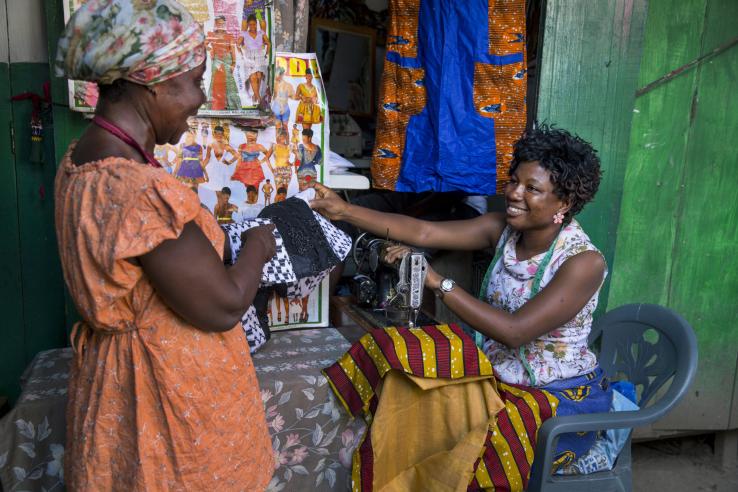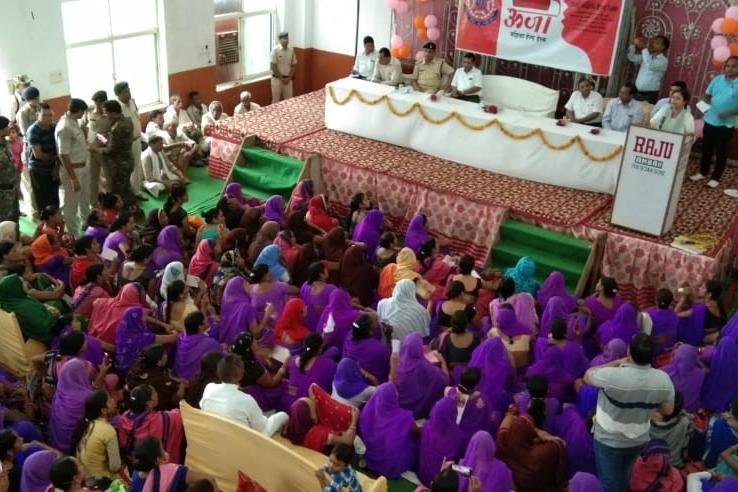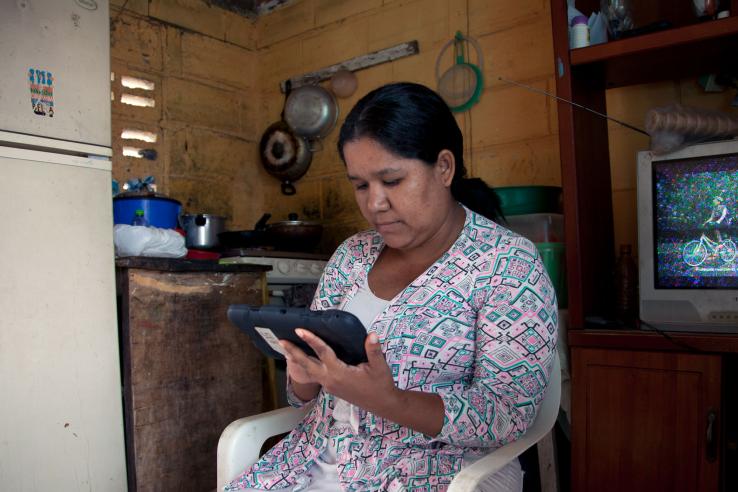Displaying 1246 - 1260 of 1291
Evaluation
Researchers conducted a randomized evaluation to test the effect of providing information and experimental kits of an improved variety of flood-tolerant rice, Swarna-Sub1 or SS1, to agro-dealers on adoption rates among their customers. Overall, informing agro-dealers and providing them with seeds led to increased farmer-level adoption compared to conventional extension approaches, particularly among high-risk farmers most likely to benefit from the technology.
Evaluation
In Pakistan, researchers partnered with a microfinance institution to conduct a randomized evaluation to test how larger asset-based loans for purchasing business equipment, combined with flexible repayment options, affected business performance and household well-being. Business owners who received these loans increased their profits, had larger businesses, and spent more on food and education, particularly for girls.
Evaluation
Early childhood is a critical time for cognitive, social, and physical development. Inequalities in children’s language abilities can persist, serving as important indicators for later life outcomes. Researchers in France are evaluating the effect of an early childhood program aiming to improve teacher instruction on young children’s language learning. Results are forthcoming.
Evaluation
In an ongoing study, researchers are evaluating whether providing subsidized test preparation to high-achieving, low-income students can diminish the barriers to entry to institutions of higher education in Chile.
Evaluation
Researchers conducted a randomized evaluation to assess how fact-checks regularly sent to participants through WhatsApp can affect their ability to discern false information, as well as their beliefs and attitudes related to topics subject to viral misinformation, particularly Covid-19. Overall, the intervention improved participants’ ability to detect misinformation and somewhat increased their willingness to participate in Covid-19 safety measures, particularly when the intervention was delivered in the form of a short text or a podcast with empathetic language.
Evaluation
Researchers investigated the role of online networking groups (via WhatsApp) and free legal aid on improving business innovation, practices, sales, and profits among growth-oriented women-owned firms in Ghana. They found that online networking groups meaningfully encouraged business innovation, improved participants’ business practices, and boosted firm profits.
Evaluation
In Pakistan, researchers are evaluating the impact of using mobile phones to directly connect politicians with voters and give voters the opportunity to provide real-time feedback to their elected representatives.
Evaluation
Researchers evaluated the effect of a gender-transformative skills-building program on IPV incidence, HIV risk behaviors, and other health outcomes in rural Ethiopia. Overall, the program led to reductions in IPV when delivered to groups of men, but not when delivered to couples or to women only. Further, across all groups, the program increased support for gender equitable norms, increased equity in intrahousehold decision-making, and reduced HIV risk behaviors.
Evaluation
Researchers conducted long-term follow-ups a mass school-based deworming program in western Kenya, which had substantially improved health and school participation of treated children, as well as of untreated children in treatment schools and children in neighboring schools in the short-term. Approximately ten years after treatment, researchers found that the program increased women’s educational attainment and men’s labor supply, with accompanying shifts in occupation choice. Twenty years after treatment, earnings, spending, and time spent working outside of agriculture had improved.
Evaluation
By the time they reach primary school, disadvantaged children often lag behind their more advantaged peers in the skills and concepts of formal math. To address this issue, researchers examined the impact of math games, played in preschools and exercising early emerging, universal and intuitive numerical and spatial abilities, on children’s learning of school math in Delhi, India. They found that the games led to long-term increases in children’s intuitive math abilities. The games also bolstered children’s mastery of the spatial and numerical language used in the preschools, but they did not enhance children’s subsequent learning of primary school mathematics.
Evaluation
Researchers are employing an RCT to evaluate whether the establishment of police station-level Women’s Help Desks (WHDs), as well as the deployment of additional female personnel to these WHDs, improves the responsiveness of frontline officers to women, as well as levels of crime and crime reporting.
Evaluation
Providing cash grants to low-income households without any strings attached has been proven to have various benefits on the lives of those who receive the transfers, but less is known about how this sudden influx of income affects the local economy and people living nearby. In western Kenya, researchers evaluated the impact of unconditional cash transfers, provided by the organization GiveDirectly, on household well-being and local economic activity. The transfers led to large increases in consumption and assets for recipients, as well as large positive impacts on consumption for non-recipient households and on revenue for firms. These results counter concerns that large cash transfers may harm those who do not receive them.
Evaluation
Researchers are partnering with a financial institution in Paraguay to evaluate the impact of a range of tablet-based applications, which remind people to save and help them make savings goals, on savings behavior of low-income individuals.
Evaluation
Researchers conducted a randomized evaluation to test whether a gender-neutral job training could shift norms in a religiously conservative region of Nigeria. Youth who were offered job training earned more, broadened their friend groups, and adopted more progressive views on women’s education, labor force participation, and household decision-making. Caregivers of participants also improved their gender beliefs.
Evaluation
Researchers evaluated the impact of group discussions and rights messaging through videos on hiring discrimination against transgender workers in India. Individuals who engaged in group discussions were more likely to hire transgender individuals.












